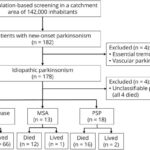Diagnosing borderline personality disorder (BPD) is a multifaceted process that requires careful evaluation by experienced healthcare professionals. Understanding how BPD is diagnosed is the first step towards effective treatment and management. This article provides a detailed overview of the diagnosis process for borderline personality disorder, ensuring you are well-informed about what to expect and how to navigate this crucial stage.
Understanding Borderline Personality Disorder Diagnosis
Borderline personality disorder is not diagnosed through a simple blood test or scan. Instead, it relies on a thorough assessment of an individual’s long-term patterns of behavior, emotional experiences, and interpersonal relationships. Diagnosis typically occurs in adulthood because personality is still developing during childhood and adolescence, and what might appear as BPD traits in younger individuals could be transient developmental phases.
The Diagnostic Process
A diagnosis of borderline personality disorder is typically reached through a combination of methods, ensuring a comprehensive and accurate evaluation. These methods are designed to gather a holistic picture of the individual’s psychological and emotional functioning.
Detailed Clinical Interview
The cornerstone of BPD diagnosis is a detailed clinical interview conducted by a qualified doctor or mental health professional, such as a psychiatrist, psychologist, or licensed clinical social worker. This interview is not a casual conversation; it’s a structured and in-depth exploration of your life experiences, feelings, and relationship patterns. The clinician will ask specific questions to understand:
- Your Symptoms: They will inquire about the specific symptoms you are experiencing, how long you’ve experienced them, and how these symptoms impact your daily life, relationships, and overall well-being. This includes exploring difficulties with self-image, emotional instability, impulsivity, and relationship challenges.
- Your History: The interview will delve into your personal history, including childhood experiences, significant life events, and past relationships. Traumatic experiences, in particular, are often explored as they can be relevant to the development of personality disorders.
- Your Functioning: The clinician will assess your ability to function in different areas of life, such as work, school, and social situations. They will want to understand how your symptoms affect your ability to maintain stability and achieve your goals.
Mental Health Evaluation
In addition to the interview, a mental health evaluation is a crucial component of the diagnostic process. This evaluation may involve:
- Standardized Questionnaires: You might be asked to complete a series of questionnaires designed to assess personality traits, emotional patterns, and symptoms related to personality disorders. These questionnaires provide structured data that can be helpful in the diagnostic process.
- Psychological Testing: In some cases, more in-depth psychological testing might be recommended to further evaluate your personality functioning and rule out other conditions. These tests are administered and interpreted by trained psychologists.
- Behavioral Observation: Throughout the interview and evaluation process, the mental health professional will also observe your behavior, communication style, and emotional presentation. These observations provide valuable contextual information.
Medical History and Examination
While BPD is a mental health condition, a review of your medical history and a physical exam are important steps. This is to:
- Rule Out Medical Conditions: Certain medical conditions can sometimes mimic psychiatric symptoms. A medical exam helps to rule out any underlying physical health issues that could be contributing to your symptoms.
- Understand Overall Health: Your medical history provides a broader context for understanding your overall health and well-being, which can be relevant to your mental health treatment plan.
- Medication Considerations: If medication is considered as part of your treatment, your medical history is crucial for ensuring safe and appropriate prescribing.
Diagnostic Criteria
The diagnosis of BPD is based on established criteria outlined in diagnostic manuals like the Diagnostic and Statistical Manual of Mental Disorders (DSM-5). These criteria are specific and detailed, and they require the presence of a persistent pattern of unstable relationships, self-image, and emotions, along with marked impulsivity. To meet the criteria for BPD, an individual must exhibit a certain number of these specific traits and symptoms, and these patterns must cause significant distress or impairment in functioning.
Age of Diagnosis Considerations
It’s important to reiterate that BPD is typically diagnosed in adults. While adolescents may exhibit some BPD traits, diagnosis is generally deferred until adulthood for several reasons:
- Personality Development: Teenage years are a period of significant personality development and change. What might appear as BPD symptoms could be part of normal adolescent turmoil and identity exploration.
- Symptom Fluctuations: Emotional and behavioral patterns in adolescence can be more fluid and less stable than in adulthood. Symptoms that resemble BPD might resolve as teenagers mature.
- Diagnostic Accuracy: Diagnosing a personality disorder in adolescence can be less reliable, as the patterns need to be enduring and pervasive to meet the diagnostic criteria.
While a formal BPD diagnosis is usually avoided in teenagers, mental health professionals may still recognize and address BPD-like symptoms in younger individuals, focusing on providing support and interventions to promote healthy emotional and personality development.
Conclusion
Seeking a diagnosis for borderline personality disorder can be a significant step towards understanding yourself and accessing appropriate treatment. The diagnostic process is thorough and designed to ensure accuracy. If you believe you or someone you know might have BPD, reaching out to a mental health professional for an evaluation is the most important action to take. A correct diagnosis opens the door to effective therapies and support systems that can significantly improve quality of life and well-being.
